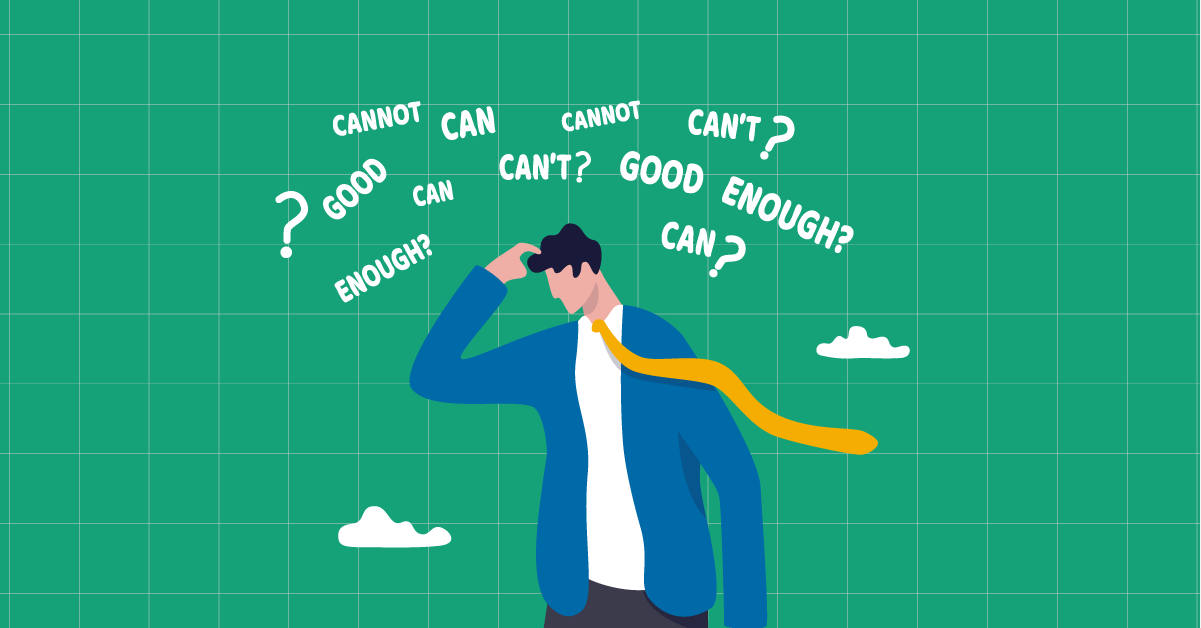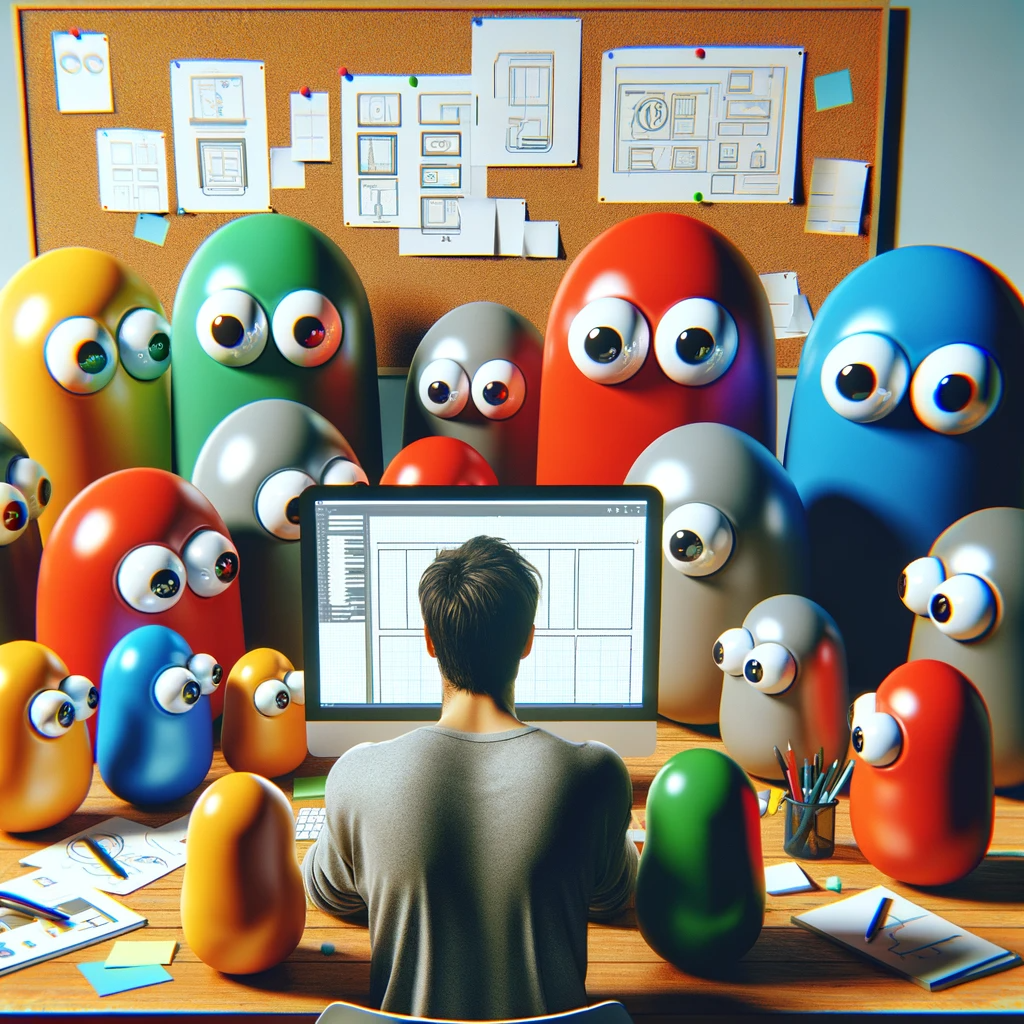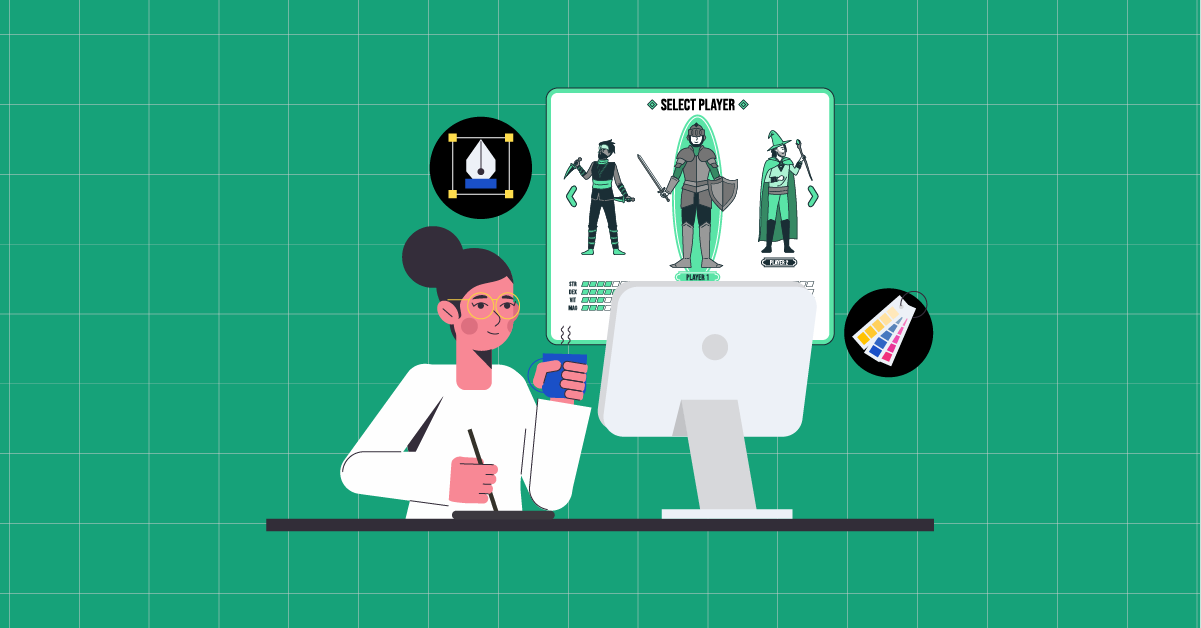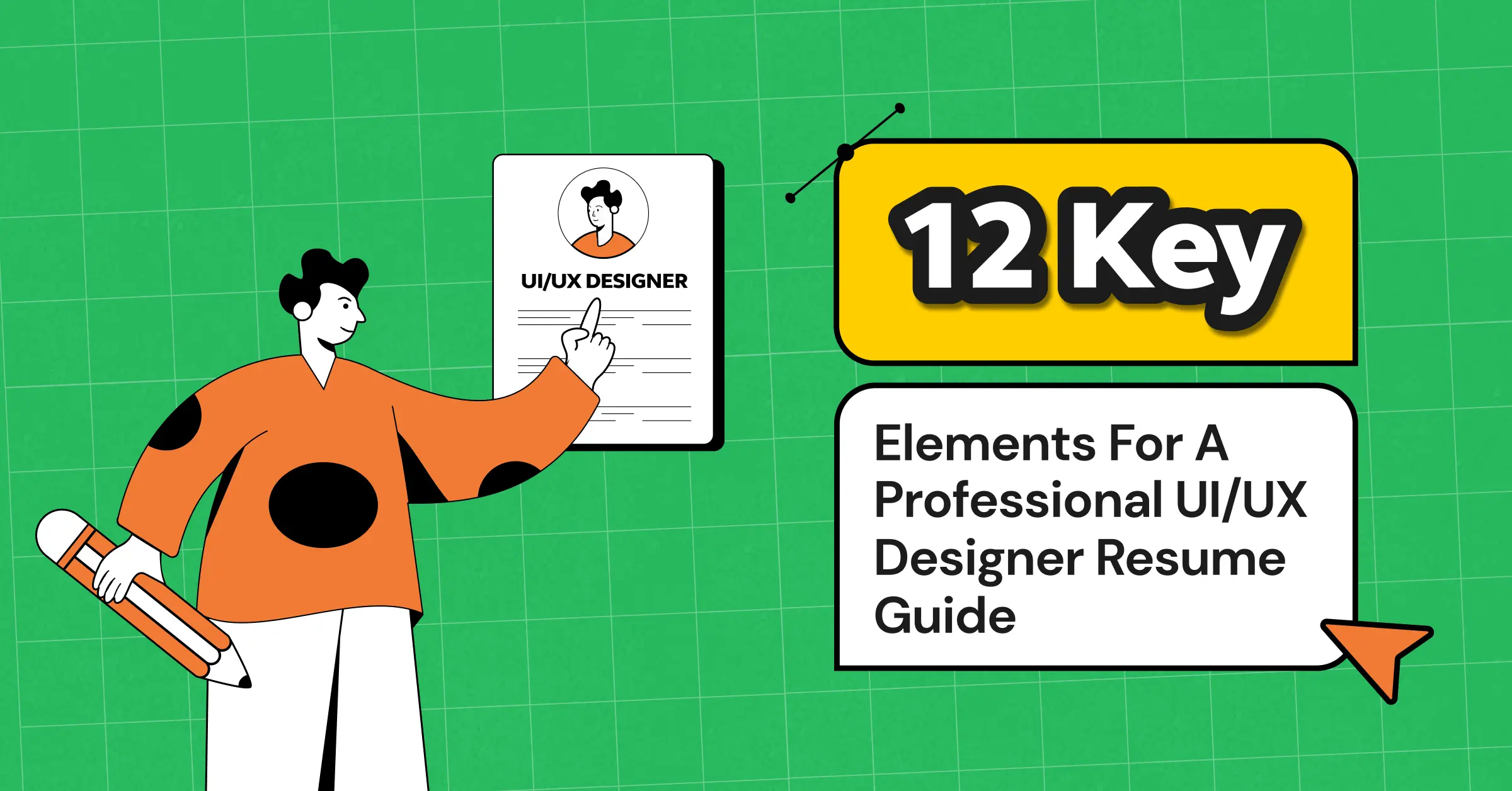
Overcome Imposter Syndrome in UI/UX Design: Top 10 Expert Tips!
Oct 01, 2024 5 Min Read 1565 Views
(Last Updated)
In the dynamic UI/UX design world, where creativity meets technology, it’s not uncommon to encounter a hidden challenge that many professionals face – imposter syndrome. Imposter syndrome in UI/UX design presents a significant obstacle for emerging professionals.
Regardless of your experience as a UI/UX professional, imposter syndrome can affect anyone. It lurks in the shadows of your success, whispering doubts about your skills and achievements in the face of competition and challenges. While it makes you question your worth, take it from experts in the field, you can easily escape this vicious web by adopting a few basic, yet effective strategies.
But what exactly is this imposter syndrome in UI/UX design? Why do UI/UX designers face imposter syndrome? What are the proven strategies or tips for dealing with imposter syndrome in the UI/UX design career? If these questions are bouncing in your head, this blog is going to answer all of them. Let’s start from the roots.

Table of contents
- What is Imposter Syndrome in UI/UX Design?
- Why do UI/UX designers face imposter syndrome?
- Ever-evolving Industry
- Comparison with Peers
- Perfectionism
- Lack of Formal Validation
- Client Feedback
- Top Strategies to Deal with Imposter Syndrome in UI/UX Design Career
- Acknowledge Your Feelings
- Talk About It
- Reflect on Your Successes
- Stop the Comparison Game
- Practice Self-Compassion
- Visualize Success
- Set Realistic Goals
- Professional Development
- Conclusion
- FAQs
- How common is imposter syndrome among UI/UX designers?
- Can imposter syndrome affect my career growth in UI/UX design?
- What are some signs that I might be experiencing imposter syndrome?
- How can I stop comparing my work to other designers?
- Is it normal to feel like I don’t know enough in the field of UI/UX design?
What is Imposter Syndrome in UI/UX Design?
Imposter syndrome, in simple terms, is the internal experience of believing that you are not as competent as others perceive you to be. It can be compared to an inner critic who continuously questions your accomplishments, placing the credit for your success and good work on chance, luck, or other uncontrollable circumstances rather than your abilities, talent, and hard work.
In the context of UI/UX design, imposter syndrome is the persistent doubt in your abilities and contributions as a designer, despite the value and creativity you bring to your projects and team. You might start feeling that you’re lagging in your ability to craft superior designs. Your designs or your work isn’t good enough to receive any appreciation, and so much more!
Most professionals face imposter syndrome at some or another stage of their lives. The symptoms of this issue can vary for different professions. Here are the common signs of imposter syndrome in UI/UX design, which will help you navigate the common issue:
- Persistent self-doubt about your skills and accomplishments.
- Fear of being ‘exposed’ as not as competent as others think.
- Attributing success to external factors like luck, rather than your own ability.
- Over-preparing or overworking to ensure that no one discovers your ‘inadequacy’.
- Downplaying your expertise and achievements.
- Fear of making mistakes.
- Setting unrealistic expectations/goals/targets to avoid feeling like a failure.
As we proceed to the next phase, make sure you understand the fundamentals of UI/UX, which includes heuristic analysis, journey maps, testing, etc. If you want to explore more about it, join GUVI’s UI/UX Course with Placement Assistance. You’ll also learn about the tools used in UI/UX which are AdobeXD, Illustrator, Photoshop, Figma, and many more. Build some amazing real-time projects to get hands-on experience.
Also, if you want to explore Figma through a Self-paced course, try GUVI’s Figma certification course.
Why do UI/UX designers face imposter syndrome?
As we mentioned before, UI/UX design is an extremely fast-paced profession that requires constant upskilling in the face of increasing competition and innovation. The unique challenges and dynamics of UI/UX design often place designers in a position of constant learning and adaptation. Hence, imposter syndrome is particularly prevalent in this field.
Given that, UI/UX designers might face imposter syndrome because of the lack of proper formal appreciation, increasing competition, constantly changing design trends and skill requirements, self-comparison, or any improvement feedback they might receive over a period of time.
Let’s understand the causes of imposter syndrome in UI/UX design in more detail:
1. Ever-evolving Industry
The rapid pace of technological advancements means that UI/UX designers must continually learn and adapt, leading to feelings of inadequacy.
2. Comparison with Peers
With platforms like Dribbble and Behance, designers constantly compare their work with others, which can fuel feelings of not being ‘good enough’.

3. Perfectionism
Many designers have a perfectionist streak, setting unrealistically high standards for themselves, which can lead to feelings of failure.
4. Lack of Formal Validation
Unlike other professions, UI/UX design often lacks clear, formal benchmarks for success, making it hard to gauge one’s competence.
5. Client Feedback
Designers often face subjective feedback from clients, which can be internalized as personal criticism or doubt about their abilities.
Also Read: User Flow in UI/UX Design
Top Strategies to Deal with Imposter Syndrome in UI/UX Design Career
Many therapists and UI/UX experts suggest remembering your accomplishments and achievements, setting realistic goals, avoiding comparison, constant upskilling, seeking support and talking to peers/mentors after acknowledging your negative emotions will help overcome imposter syndrome in UI/UX design to a great extent.
While imposter syndrome in UI/UX design is widely experienced, not a lot of people know how to combat these negative emotions. Let’s discover some of the best tips or strategies to overcome imposter syndrome in UI/UX designers:
1. Acknowledge Your Feelings
As someone experiencing self-doubt and negative emotions regarding your ability and excellence, it’s vital to recognize and accept your feelings of imposter syndrome. This isn’t about admitting weakness; it’s about understanding your emotional landscape.
Also Explore | 8 Effective Ways to Learn UI/UX Design [2024]
Acknowledging these feelings is the first step in overcoming them. It’s okay to feel unsure at this moment. What matters is how you move forward with those feelings. Once acknowledged, you can seek active help and an improvement roadmap to overcome imposter syndrome in a UI/UX design career.

2. Talk About It
Talking always helps! Sharing your experiences with trusted colleagues or mentors can be incredibly liberating. You’ll often find that they, too, have walked this path and can offer empathy and understanding.
This act of sharing can be both a relief and a way to gain perspective that you’re not alone in these challenges. During the conversation, there’s a high chance that you will draw inspiration from their experience and gain confidence to combat the challenge that induced that imposter syndrome in your mind.
3. Reflect on Your Successes
Remember, whenever you are feeling inadequate, or not good enough, it’s time to go back to your past achievements. Keep a tangible record of your achievements, no matter how small they may seem.
This could be positive feedback from clients, successful project completions, or personal milestones. You got those achievements because you were that incredible and you deserved it entirely. Regularly reviewing these can serve as a powerful reminder of your capabilities and growth.
4. Stop the Comparison Game
Someone has rightly said, that comparison is the killer of happiness. There is always someone going to be better than us, in terms of skills, experience, talent, vision, creativity, and so on. But that doesn’t mean we’re any lesser. Here, it’s essential to understand that we only have to get better than our past performance.
In the creative field of UI/UX, it’s easy to fall into the trap of comparing your work with others. Remember, each designer’s journey is unique, and filled with different challenges and learning curves. Focus on your path and growth, rather than measuring yourself against someone else.
Also Read: How to Become a UI/UX Designer
5. Practice Self-Compassion
Be as kind to yourself as you would be to a dear friend. Understand that perfection is unattainable and that making mistakes is a natural part of the learning process. Treat yourself with patience and understanding.
Don’t be so hard on yourself. You’re doing great in your profession and if you’ve got a new, better opportunity, you must have done something to deserve it! Practicing self-compassion is a great way to combat imposter syndrome in UI/UX design careers.
Also Read: Roles and Responsibilities of UI/UX designers
6. Visualize Success
Spend time visualizing the successful completion of your projects. This practice not only boosts confidence but also prepares your mind to tackle challenges more effectively.
Positive visualization is a powerful tool for reshaping your self-perception and letting your projects succeed. When you visualize success, you get inspired and self-motivated to take all it takes to make that imagination a reality. You can easily combat your imposter syndrome with this strategy.

7. Set Realistic Goals
Setting unrealistic expectations is a recipe for disaster while dealing with imposter syndrome. To prove ourselves worthy, we often set huge targets and large goals which are obviously beyond reach, and hence counter-effective.
You need to break your projects into smaller, manageable tasks and set achievable goals. Take baby steps. Celebrating these small wins can build momentum and confidence, helping you see progress in real-time and fend off any thoughts that tell you that you’re not good enough for this project/responsibility.
Find Out Why Should You Become a UI/UX Designer: Top 10 Reasons
8. Professional Development
Even after taking all the above steps, if you feel you need to improve, then there’s no harm in improving! UI/UX is always evolving courtesy of the changing trends and user expectations, so upskilling is a great way to move forward and gain back your lost confidence.
You can engage in workshops and courses to not only sharpen your skills but also to connect with your peers. These interactions can provide new perspectives, inspiration, and a sense of community in your professional journey.
Kickstart your UI/UX journey by enrolling in GUVI’s UI/UX Course where you will master technologies like AdobeXd, Illustrator, and Figma, and build interesting real-life UI/UX projects.
Alternatively, if you would like to explore Figma through a Self-paced course, try GUVI’s Figma certification course.
Conclusion
In conclusion, while imposter syndrome can be a challenging aspect of a career in UI/UX design, it’s not insurmountable. By understanding what it is, why it occurs, and how to address it with practical strategies, you can diminish its impact on your professional life.
Remember, your journey as a UI/UX designer is unique and valuable. Embrace your path with confidence, armed with the strategies to overcome imposter syndrome. Just remember, you got this! You’ve come this far, you can go much farther.
Also Explore: 8 Excellent Product-based Companies for UI/UX Designing
FAQs
How common is imposter syndrome among UI/UX designers?
Imposter syndrome is very common among UI/UX designers, especially given the field’s competitive and ever-evolving nature. It’s estimated that a significant majority of professionals experience it at some point in their careers.
Can imposter syndrome affect my career growth in UI/UX design?
Yes, it can. It may hold you back from taking on new challenges or opportunities for growth. However, recognizing and addressing it can help you continue to advance in your career.
What are some signs that I might be experiencing imposter syndrome?
Signs include doubting your abilities, fearing exposure as a fraud, attributing success to luck, and feeling like you don’t deserve your achievements.
How can I stop comparing my work to other designers?
Focus on your personal growth and journey. Remember, every designer has a unique path and set of experiences. Use others’ work for inspiration, not comparison.
Is it normal to feel like I don’t know enough in the field of UI/UX design?
Absolutely. The field is constantly evolving, making it impossible to know everything. Embrace continuous learning as a natural and essential part of your career.
Focus on your personal growth and journey. Remember, every designer has a unique path and set of experiences. Use others’ work for inspiration, not comparison.














![Wireframe vs. Mockup vs. Prototype: Top Differences [2024] 8 wireframe vs. mockup vs. prototype](https://www.guvi.in/blog/wp-content/uploads/2023/12/Wireframe-vs.-Mockup-vs.-Prototype_-Top-Differences-feature-image.png)



Did you enjoy this article?